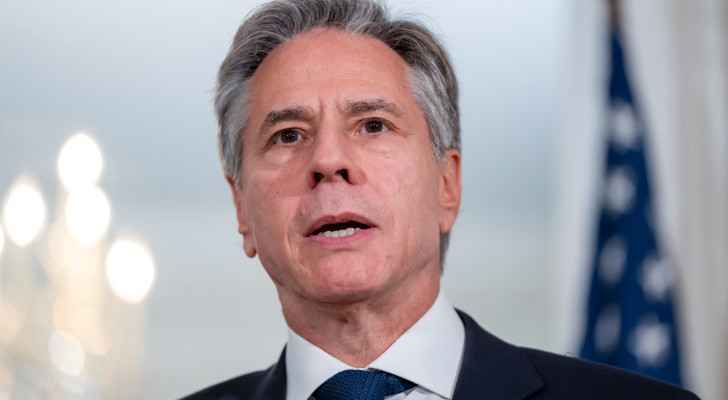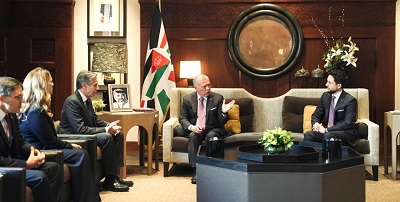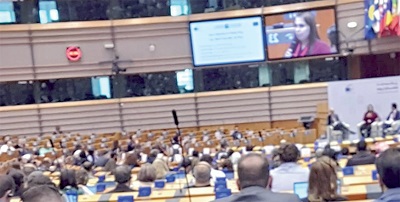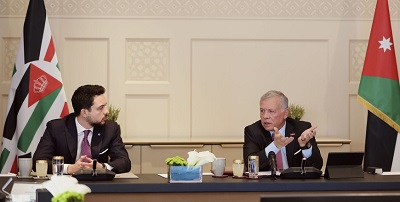Israeli Prime Minister Benjamin Netanyahu appears to be moving ahead with his pledge to ban Al Jazeera following the recent passage of a new law in the Israeli Knesset. The law, approved in a landslide 71–10 vote, grants officials the authority to shut down foreign news networks suspected of causing “harm to the state’s security.” “Al Jazeera harmed Israel’s security, actively participated in the October 7 massacre, and incited against Israeli soldiers,” Netanyahu claimed last week, which Al Jazeera vehemently denied. The move has raised concerns among advocates, including the Committee to Protect Journalists, and from the White House.
But what will this change mean within Israel, where media and nightly television depict a very different reality than the rest of the world is seeing? Ido David Cohen, a writer and journalist covering Israeli media for Haaretz, views this law as part of an ongoing campaign of intimidation and censorship by Netanyahu that began long before the current war. (His own outlet has been threatened as well.) He spoke to me from Tel Aviv about the state of journalistic independence in Israel, the potential impact of this new law on domestic Israeli media outlets, and how Netanyahu’s erosion of press freedom could have significant long-term implications for Israel’s standing as a democracy, even if the disappearance of Al Jazeera may not change much at first. Our conversation has been edited and condensed for clarity.
Aymann Ismail: It’s jarring to see the Israeli government make lateral moves to ban an international news outlet. Could something like this have happened before the war?
Ido David Cohen: It’s funny, it’s almost hard to remember what life was like before the war. Since this government first came to power in January 2023, there were big concerns about what they were going to do regarding freedom of speech. Generally, free speech is allowed as far as journalists can do their work and criticize the government. But over 15 years with Benjamin Netanyahu, since 2009, things have gotten worse.
Netanyahu put a lot of effort into making Israeli media loyal or flattering. He made himself the minister of communications and media—what we call in Hebrew Tikshoret. Some of his corruption charges are connected to his behavior in that role. He tried to give orders to media outlets. For example, he and his wife told Walla to remove articles. He planted people who are not journalists in the army radio station, which is actually one of the two mainstream Israeli radio stations. Netanyahu encouraged billionaire Sheldon Adelson to establish a newspaper to explicitly help the right wing. This newspaper, Israel Hayom, was handed out for free in public places like squares and train stations, and is widely considered to be one of the largest factors in Netanyahu’s return to power. It’s why in Israel, we call it “Bibiton,” or “Bibi newspaper,” though it has also been critical of him at times recently.
Newspapers, television channels, and some websites have shifted right. We also have media outlets, like Haaretz, that try to do the work and believe in journalism, but we still have to keep our eyes open and be on the lookout for what Netanyahu is trying to do.
The move to ban Al Jazeera is headed by current Minister of Communication and Media Shlomo Karhi. What can you tell me about him?
Shlomo Karhi is a nightmare. He is even more terrifying than when Netanyahu was himself prime minister and minister of communication. He couldn’t care less about freedom of speech or journalism. He comes from a very, very devoted religious Orthodox point of view, and he only sees media as a tool for supporting his party and their views. One of the first things he tried to do when he rose to power in 2023 was to shut down the Israeli Public Broadcasting Corporation, or IPBC, which was only paused because it happened at the same time as judicial overhaul, which would effectively remove checks and balances from our government. They probably figured they can’t push all the buttons at the same time.
Instead, Karhi financially boosted Channel 14, a pro-Netanyahu channel, as well as harasses public broadcasters. He sends them letters citing things their anchors say, hoping to make them afraid of expressing anti-Netanyahu views. Most of what he accuses is not serious, and it’s obvious he’s just harassing them. One could argue that he has succeeded because after threats to shut them down, the IPBC hired a journalist who is one of Netanyahu’s biggest advocates in Israel who now has a very dominant spot. The public broadcaster never said they brought her because they wanted to shield against the government’s sword, but many people believe that was the reason.
How does this affect what Israelis see in the press and on TV every night?
In the period between Oct. 7 and Oct. 26, after the nightmare that had just happened to us but before Israeli soldiers physically entered Gaza, discussions on most mainstream media outlets were the most critical of the government I’ve ever seen. I think it was because we were in shock. Virtually every outlet pinned direct responsibility on Netanyahu, and pointed to the shattered illusion that only his right-wing party coalition can keep the Israeli public safe. Channel 12, for example, the most viewed news channel in Israel, removed their in-house Netanyahu supporter, who there until Oct. 6 and never came back. There was less tolerance for Netanyahu’s bullshit in the beginning of the war. And to some degree, that’s still true.
But as the war dragged on, the situation shifted. When it came to Israeli soldiers, the mainstream goes to a place of standing firmly with the army. Israelis have more trust in the army than the government. And the soldiers who are in Gaza are not only right wing, but they are the sons of the entire political spectrum in Israel. That, paired with a mainstream view that the army can bring back the hostages in Gaza, has steered the Israeli mainstream back, unfortunately, to not asking as many questions and instead sticking together, like an army Kumbaya. The anchor of Channel 12 held a toy gun that he brought from a school classroom in Gaza and waved it in front of the viewers during a Friday evening broadcast. To see him doing that, the same guy who was very critical of the government and Netanyahu, is not something we want to see from a journalist covering a war, no matter how afraid Israelis are.
It’s also why you won’t see any TV coverage of the suffering in Gaza as it intensifies more and more. Some people in Israel probably don’t want to hear about Palestinian suffering right now. TV channels choose not to show it because if you ask most people in Israel, they will tell you that the Israeli public doesn’t want to see it. Some channels are trying to do a better job of showing the suffering in Gaza, though it’s been really out of the picture except in Haaretz. And that’s not good. One thing we’ve argued is that it doesn’t matter if Israelis are too traumatized to feel any empathy or sympathy for another nation—they still need the information and to know what’s happening, because Israeli people should also have sympathy for other children and women and men who suffer and die, who, of course, are not all terrorists or connected to terrorist organizations. I think some of them are trying to do a better job in also showing the Palestinian side and giving the information to their audiences, but I don’t think it’s enough. They should give more information about what’s happening in Gaza. People have to know what’s happening or they won’t be able to understand Israel’s standing in the international community, in the U.N., or in the United States and Europe.
It seemed in the early stages of the war that the radical voices in the Israeli debate were less loud. Now, it seems Netanyahu supporters, who are not few in Israeli media, have returned to being as loud as they were before the war. They are now targeting the families of the hostages. This is where we are at right now. Channel 14 is portraying the families of Israeli hostages as villains. One of the main anchors of Channel 14 said last week of a demonstration led by families of Israeli hostages, “Where is the head of the police in Tel Aviv? Why doesn’t he come and harm them?” I was shocked. The pro-Netanyahu parts of the media have returned to being the loudest and craziest again. Oh God. Things are awful.
You’ve previously written about how government rhetoric has made journalists feel less safe. Has there been a chilling effect in reporting?
Yes. I wrote about violence against journalists at the peak of the anti-government protests last year. The government has a long history of labeling unfavorable journalists as radical, biased, and worse. It’s normalized to the point that when Ilana Dayan, who is a very respected journalist in Israel, spoke out against legislation and Netanyahu, the Likud party reacted by forcing the channel to attach a disclaimer calling her a radical leftist who will do anything to oppose Netanyahu. And of course, with Channel 14 not respecting journalism and broadcasting propaganda all day, you can imagine how they talk about other journalists. And with the minister of police being Itamar Ben-Gvir, the most racist minister ever in Israel, the Likud’s supporters feel they don’t have to fear recourse. They threw a bottle of beer at journalists from Channel 13 when they were covering demonstrations, just for being from a channel that is known to be not Netanyahu’s channel. Incidentally, they struck two of the channel’s conservative journalists. Last year, it came to a point that journalists were targeted just for the channel that was written on their microphones. Just that is enough for someone to be suddenly surrounded by a mob calling them a traitor. Journalists I spoke to told me it was the scariest moment for them. They told me they either don’t go to cover right-wing demonstrations at all anymore, or go with security. They say the risk is too high—that they want to live.
Is this all working on the Israeli public?
Since Oct. 7, public trust in Netanyahu has fallen to the lowest point in his life, according to polling. Most Israelis want elections, maybe not immediately, but definitely after the war ends. A majority believe he is serving his own interests in the war. So, do I think the government’s blitz strategy is working? There is no easy answer.
There is a lot of anger and fury in Israel about what’s happened to us and to the country on Oct. 7: 1,200 people were slaughtered in one day. We’re a country in trauma. Hundreds of soldiers have died in the war since then. You have this crowd of people that will buy whatever he says, apparently, but you also have a majority, as it seems now, that doesn’t buy anything Netanyahu says.
But we have reason to be skeptical. As long as things don’t change politically, we have reason to fear that Netanyahu will move forward with his plans for judicial reform and other things. And if that happens, it’d be very bad. Israeli democracy is not getting any way better with Netanyahu and his partners in power. The public is skeptical, and I hope this skepticism will materialize into elections as soon as possible. Who knows what other tricks he will pull until then?
Do people in Israel watch Al Jazeera?
Not many Israelis are watching Al Jazeera. This new legislation will not have any immediate effect on the Israeli TV landscape, because it’s not a channel that Israelis watch in general. The rationale behind banning Al Jazeera seems childish. I want to emphasize that I am against it. I don’t see any good in it. Israel may not like the channel and the channel may not like Israel at all, but it’s not a reason to prevent a news channel from having basic access to do their job. Many Israelis are interviewed in Al Jazeera. This move really only damages Israel.
I am most concerned that the government could rely on this precedent to hurt local Arabic-language broadcasters in Israel. Freedom of speech for Arabs has slipped since the start of this war. They don’t have enough support to take any major steps against any Israeli media outlet right now, but of course—and it’s an important point—freedom of speech for Arab citizens in Israel is worse than for Jewish people. I’m sorry to say it. It’s sad and awful, but we see it in many different examples in what the police did after Oct. 7. It’s insane that the minister of communications filed so many complaints against the Arabic-language Israeli Public Broadcasting Corporation channel. I think it’s definitely due to his racism. Regulators of the nonpublic channels and radio stations have given Arabic-language radio stations harsh, big fines. Arabic radio stations have less freedom of speech than Hebrew-speaking or non-Arabic media outlets. I can stand by that. It’s true and it’s scary. And it’s been escalating during the war.
Do you think the effect of this will reach even further? To your work?
Look. This government is a threat to journalism. They harm TV channels, Israeli journalists, and independent media. Karhi, the minister of communications, already blames any journalist or channel that is not entirely supportive of Netanyahu and the Likud party as radical and biased. We have all the reason to be skeptical of anything they say about any media outlet. I don’t trust them because I see how they harass journalists for no reason.
They have also threatened regulation to hurt Haaretz. We have every reason to believe this government will help media outlets that support it, and if they can, shut all other media outlets down. It’s scary. I think they don’t have enough public support now after Oct. 7 to move forward with sweeping action against the media. But do they want to? Of course.




